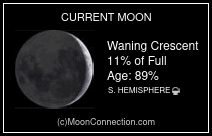Like a lot of monsters, zombies have their roots in folklore and -- according to some researchers -- in real events in Haiti. In this article, we'll discuss Haitian zombies, explore depictions of zombies in films and video games and review the best course of action for surviving an attack.
Haitian Zombies
Zora Neal Hurston book cover
Zora Neale Hurston is one of many ethnographers who have documented the traditions and beliefs of Haitian voodoo.
Zombies are common in Haitian stories and folklore. Researchers studying Haitian culture have related countless tales of bodies brought back to life by bokor, or sorcerers. These zombies are mindless slaves. They are not self-aware and are not particularly dangerous unless fed salt, which restores their senses. These stories are widespread and similar to urban legends -- they prey on the listener's deepest fears and seem believable in spite of their improbability.
Even after documenting numerous stories and rumors, researchers found little solid evidence to explain or prove the phenomenon. Often, the alleged zombies had received little or no medical care before their apparent deaths. Researchers also had trouble ruling out mistaken identity and fraud.
In 1980, a man appeared in a rural Haitian village. He claimed to be Clairvius Narcisse, who had died in Albert Schweitzer Hospital in Deschapelles, Haiti on May 2, 1962. Narcisse described being conscious but paralyzed during his presumed death -- he had even seen the doctor cover his face with a sheet. Narcisse claimed that a bokor had resurrected him and made him a zombie.
Voodoo
Voodoo is a Haitian religion rooted in West African traditions. Also called voudou, vodun or voudoun, it bears little resemblance to voodoo as depicted in popular culture. You can learn more about the myths and facts of voodoo in How Voodoo Works.
Since the hospital had documented Narcisse's illness and death, scientists viewed him as a potential proof for Haitian zombies. Narcisse answered questions about his family and childhood that not even a close friend could have known. Eventually, his family and many outside observers agreed that he was a zombie returned to life.
Narcisse was the impetus for the Zombie Project -- a study into the origins of zombies conducted in Haiti between 1982 and 1984. During that time, ethnobotanist and anthropologist Dr. Wade Davis traveled through Haiti in the hopes of discovering what causes Haitian zombies.
Next, we'll look at what Davis discovered.
Zombies and Haitian Law
A law that seems to condemn zombie creation went into effect in Haiti in 1835 [ref]. Article 246 of the Haitian Penal Code classifies the administration of a substance that creates a prolonged period of lethargy without causing death as attempted murder. If the substance causes the appearance of death and results in the burial of the victim, the act is classified as murder.
Haitian Zombies
Zora Neal Hurston book cover
Zora Neale Hurston is one of many ethnographers who have documented the traditions and beliefs of Haitian voodoo.
Zombies are common in Haitian stories and folklore. Researchers studying Haitian culture have related countless tales of bodies brought back to life by bokor, or sorcerers. These zombies are mindless slaves. They are not self-aware and are not particularly dangerous unless fed salt, which restores their senses. These stories are widespread and similar to urban legends -- they prey on the listener's deepest fears and seem believable in spite of their improbability.
Even after documenting numerous stories and rumors, researchers found little solid evidence to explain or prove the phenomenon. Often, the alleged zombies had received little or no medical care before their apparent deaths. Researchers also had trouble ruling out mistaken identity and fraud.
In 1980, a man appeared in a rural Haitian village. He claimed to be Clairvius Narcisse, who had died in Albert Schweitzer Hospital in Deschapelles, Haiti on May 2, 1962. Narcisse described being conscious but paralyzed during his presumed death -- he had even seen the doctor cover his face with a sheet. Narcisse claimed that a bokor had resurrected him and made him a zombie.
Voodoo
Voodoo is a Haitian religion rooted in West African traditions. Also called voudou, vodun or voudoun, it bears little resemblance to voodoo as depicted in popular culture. You can learn more about the myths and facts of voodoo in How Voodoo Works.
Since the hospital had documented Narcisse's illness and death, scientists viewed him as a potential proof for Haitian zombies. Narcisse answered questions about his family and childhood that not even a close friend could have known. Eventually, his family and many outside observers agreed that he was a zombie returned to life.
Narcisse was the impetus for the Zombie Project -- a study into the origins of zombies conducted in Haiti between 1982 and 1984. During that time, ethnobotanist and anthropologist Dr. Wade Davis traveled through Haiti in the hopes of discovering what causes Haitian zombies.
Next, we'll look at what Davis discovered.
Zombies and Haitian Law
A law that seems to condemn zombie creation went into effect in Haiti in 1835 [ref]. Article 246 of the Haitian Penal Code classifies the administration of a substance that creates a prolonged period of lethargy without causing death as attempted murder. If the substance causes the appearance of death and results in the burial of the victim, the act is classified as murder.















0 comments